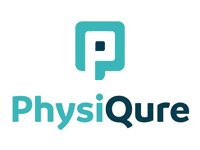Disc herniation is
the result of a bulging disk in the spinal canal. Symptoms include pain,
tingling, numbness, and difficulty walking or standing. Various treatment
options are available, including anti-inflammatory drugs and muscle relaxants.
Physical therapy may be used to loosen the muscles and increase circulation. In
severe cases, a doctor may administer a steroid injection. This will reduce
inflammation of the affected nerve. This procedure is usually short-lived and
requires repeated visits.
Herniated discs can
be painful, and the best treatment is to avoid aggravating conditions. Wearing
high heels or sleeping on your back can cause pressure on the disc. Also,
bending or reaching over a prolonged period of time can lead to herniation.
Patients with herniated discs can seek treatment from a physical therapist
for physical therapy and special
exercises. Rehabilitation programs can also help minimize pain and discomfort.
The diagnosis and
treatment of a herniated disc is important. Herniated discs are often caused by
an injury, such as a collision or falling. Sometimes, the weakened wall of the
disk can lead to herniation. Other causes of herniation include improper lifting
or poor posture. While most herniated discs will heal on their own, you may
need to seek medical attention right away.
